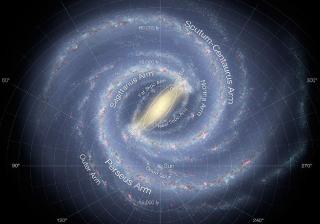Minniti, D.; Lucas, P. W.; Emerson, J. P.; Saito, R. K.; Hempel, M.; Pietrukowicz, P.; Ahumada, A. V.; Alonso, M. V.; Alonso-Garcia, J.; Arias, J. I.; Bandyopadhyay, R. M.; Barbá, R. H.; Barbuy, B.; Bedin, L. R.; Bica, E.; Borissova, J.; Bronfman, L.; Carraro, G.; Catelan, M.; Clariá, J. J.; Cross, N.; de Grijs, R.; Dékány, I.; Drew, J. E.; Fariña, C.; Feinstein, C.; Fernández Lajús, E.; Gamen, R. C.; Geisler, D.; Gieren, W.; Goldman, B.; Gonzalez, O. A.; Gunthardt, G.; Gurovich, S.; Hambly, N. C.; Irwin, M. J.; Ivanov, V. D.; Jordán, A.; Kerins, E.; Kinemuchi, K.; Kurtev, R.; López-Corredoira, M.; Maccarone, T.; Masetti, N.; Merlo, D.; Messineo, M.; Mirabel, I. F.; Monaco, L.; Morelli, L.; Padilla, N.; Palma, T.; Parisi, M. C.; Pignata, G.; Rejkuba, M.; Roman-Lopes, A.; Sale, S. E.; Schreiber, M. R.; Schröder, A. C.; Smith, M.; Sodré, L., Jr.; Soto, M.; Tamura, M.; Tappert, C.; Thompson, M. A.; Toledo, I.; Zoccali, M.; Pietrzynski, G.
Bibliographical reference
New Astronomy, Volume 15, Issue 5, p. 433-443.
Advertised on:
7
2010
Journal
Citations
878
Refereed citations
760
Description
We describe the public ESO near-IR variability survey (VVV) scanning the
Milky Way bulge and an adjacent section of the mid-plane where star
formation activity is high. The survey will take 1929 h of observations
with the 4-m VISTA telescope during 5 years (2010-2014), covering
˜109 point sources across an area of 520
deg2, including 33 known globular clusters and ˜350
open clusters. The final product will be a deep near-IR atlas in five
passbands (0.9-2.5 μm) and a catalogue of more than 106
variable point sources. Unlike single-epoch surveys that, in most cases,
only produce 2-D maps, the VVV variable star survey will enable the
construction of a 3-D map of the surveyed region using well-understood
distance indicators such as RR Lyrae stars, and Cepheids. It will yield
important information on the ages of the populations. The observations
will be combined with data from MACHO, OGLE, EROS, VST, Spitzer, HST,
Chandra, INTEGRAL, WISE, Fermi LAT, XMM-Newton, GAIA and ALMA for a
complete understanding of the variable sources in the inner Milky Way.
This public survey will provide data available to the whole community
and therefore will enable further studies of the history of the Milky
Way, its globular cluster evolution, and the population census of the
Galactic Bulge and center, as well as the investigations of the star
forming regions in the disk. The combined variable star catalogues will
have important implications for theoretical investigations of pulsation
properties of stars.
Related projects

Morphology and dynamics of the Milky Way
This project consists of two parts, each differentiated but both complementary: morphology and dynamics. Detailed study of the morphology of the Milky Way pretends to provide a data base for the stellar distribution in the most remote and heavily obscured regions of our Galaxy, through the development of semiempirical models based on the
Martín
López Corredoira